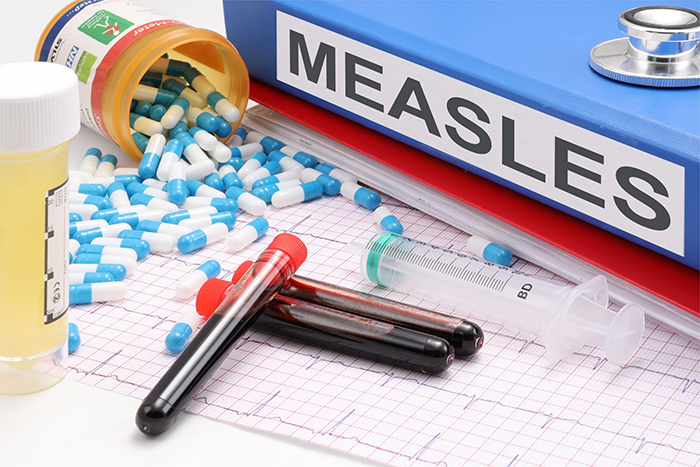
Public health officials in Chatham-Kent continue to term measles an “entirely manageable situation” when they discussed it with board of health members recently.
Dr. Shanker Nesathurai, acting medical officer of health, told the board on March 17 that there were 18 people in Chatham-Kent who have been confirmed with a case of measles.
There are 20-plus sites of potential exposure around the municipality this month, including several schools and churches, the Chatham and Wallaceburg hospitals, a big-box store and a restaurant.
Across the province, more than 350 cases of the measles had been reported as of March 12.
But Nesathurai said the vast majority of cases are in people who have not been vaccinated. Provincial numbers show that 85 per cent of cases are in people who have not been immunized against the illness, and a further 11.4 per cent are in people who have not reported their immunization status.
What concerns public health officials is how easily measles can spread. Nesathurai said one person with the illness can transmit it to 12-18 other people.
“If one person in a household has measles, everyone in that household who is not vaccinated is likely to get measles,” he said.

He added that not opting to vaccinate your children because you believe the science of vaccination is flawed is a mistake.
“When people decline the vaccine for reasons based on their understanding of the science, overwhelmingly physicians would say vaccines are a step in helping to keep your children healthy,” he said. “This is a miserable disease for many people. Some get hospitalized, some get pneumonia, three in every 1,000 get brain swelling and about one in every 1,000 will die from it.”
It does not help that misinformation on vaccines continues to spread on social media, including high-profile sources.
For example, Chatham-Kent Coun. Rhonda Jubenville termed vaccinations as useless on one post on Facebook.
“I had the MMR shot and I had both measles and mumps as a kid. I know a lot of people who did as well,” she wrote. “I’ve come to my own conclusion that most of these vaccines are useless and potentially harmful.”
Nesathurai said adults who had measles as a child may not fully recall the severity of the illness as well.
“It’s not a pleasant illness. Having measles can be really miserable for a child,” he said.
Nesathurai said measles also deplete the body’s ability to hold off other infections.
“With measles, all the immunity to other diseases may be reduced,” he said. “And for a small group of people who get measles, they can get a condition where they recover from the illness and many years later they can suffer from an acute neurological disease.”
Most people aged 17 and up in C-K have been vaccinated. Nesathurai said 95 per cent of people aged 17 here have received the vaccine.
“The benefits of the vaccine so outweigh any reasonable risk assessment. The biggest side effect (from the vaccine) is a sore arm. Some get a low-grade fever; others might get a rash,” he said.
The biggest exposure issue is among young children. Provincial figures show that 51 per cent of measles cases have presented in kids aged nine and younger. Nesathurai suggested local physicians consider offering vaccinations in children as young as six months.
“Based on the risk a child has, a child can be vaccinated today at six months. Then they need to be vaccinated again at a year and then between four and six years of age,” he said.
Carina Caryn, acting director of public health, said CK Public Health is educating the general public on measles and working with families with a member who has measles.
“We’re working with the identified cases, educating them on how long they need to isolate and how to access medical care,” she said.
The Chatham-Kent Health Alliance has opened a Measles Information Centre as well.
In all cases, health officials urge people who are showing signs of measles to call ahead before visiting the hospital, a health-care provider or clinic.
Symptoms can include a fever, runny nose, cough, drowsiness, irritability, and red eyes. A red rash appears on the face three-to-seven days after the start of the above symptoms. The rash may start from the face and progress down the body.
However, it can take up to three weeks for symptoms to surface.
“It’s a long, long incubation period. It can be weeks from initial exposure until presentation,” Nesathurai said, meaning people could be contagious and not even know it.






